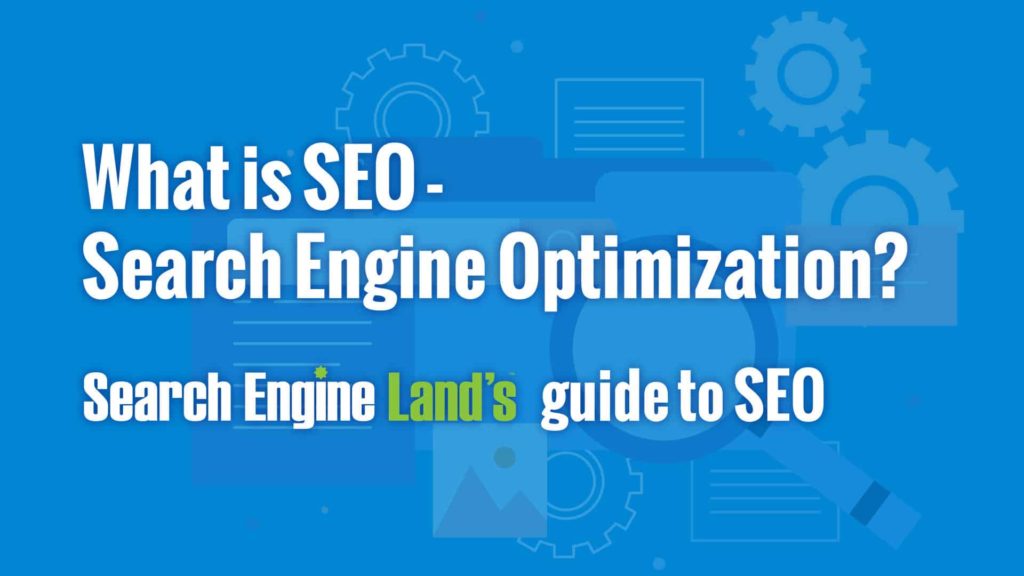Professional Data Security Management (DSPM) is an integral aspect of safeguarding valuable information in today’s interconnected digital landscape. DSPM refers to the proactive measures and strategies implemented by businesses and organizations to protect sensitive data from unauthorized access, breaches, and cyber threats. With the exponential growth of digital data and the increasing sophistication of cyber attacks, ensuring robust data security has become a pressing concern for enterprises across various industries. As technology advancements continue to revolutionize the way businesses operate, it is crucial to take a closer look at Professional DSPM to understand its unique features and the impacts it can have on overall data protection.
One significant impact of Professional DSPM is the ability to mitigate potential risks and vulnerabilities that could undermine the integrity and confidentiality of sensitive information. By adopting a comprehensive approach to data security, businesses can proactively identify potential threats and implement appropriate measures to prevent security breaches. From encryption protocols and secure authentication systems to strict access controls and regular security audits, Professional DSPM Data Security Management ensures that data is safeguarded at every level. Additionally, the increasing complexity of modern data ecosystems poses unique challenges in terms of data management, storage, and sharing. Professional DSPM addresses these challenges by providing advanced tools and technologies that enable efficient data handling while maintaining strict security standards.
In the upcoming sections, we will delve deeper into the key takeaways concerning Professional DSPM. We will explore the crucial elements of a robust DSPM strategy, including the significance of employee awareness and training, effective encryption methods, and the role of data backups in mitigating the impact of potential breaches. By understanding these key takeaways, organizations can enhance their data security posture and ensure that their invaluable information remains protected from the ever-evolving landscape of cyber threats. Stay tuned to discover the essential strategies and best practices for Professional DSPM that can help fortify your organization’s data security framework.
key Takeaways
1. Professional DSPM aims to ensure data security by managing access rights, monitoring user activity, and enforcing data protection policies, offering businesses an effective solution to safeguard sensitive information.
2. The four key components of DSPM are user activity monitoring, user access management, data classification, and policy enforcement, working together to create a comprehensive data security framework.
3. DSPM tools provide organizations with real-time visibility into user behaviors, allowing them to proactively identify potential security breaches and respond promptly to mitigate risks.
4. Automating the enforcement of data protection policies through DSPM reduces the burden on IT departments, streamlining security operations and enabling efficient incident response.
5. With the increasing emphasis on regulatory compliance and the need for data privacy, implementing professional DSPM solutions becomes crucial for organizations to protect their sensitive data effectively.
What is Professional DSPM Data Security Management: A Closer Look?
Professional DSPM Data Security Management: A Closer Look is a comprehensive guide that explores the intricacies of data security management in a professional setting. In this article, we will delve deep into various aspects of DSPM data security management, providing a closer look at its importance, key components, best practices, and challenges.
The Importance of Professional DSPM Data Security Management
Data security management is of utmost importance in today’s digital age, where organizations are dealing with vast amounts of sensitive data. The risks associated with data breaches and unauthorized access have severe consequences, including financial losses, damaged reputation, and potential legal issues. Implementing professional DSPM data security management practices is crucial to protect valuable information and maintain the trust of customers and stakeholders.
Key Components of Professional DSPM Data Security Management
Professional DSPM data security management comprises several essential components that work together to create a robust data protection framework:
- Data Classification: Properly categorizing data based on its sensitivity and importance enables organizations to prioritize and allocate resources accordingly.
- Access Control: Implementing strict access control measures ensures that only authorized individuals can access sensitive data, reducing the risk of unauthorized breaches.
- Encryption: Encrypting data in transit and at rest helps safeguard information, making it unreadable to those without the proper decryption keys.
- Security Monitoring: Continuously monitoring data security ensures timely detection of any potential threats, allowing prompt actions to mitigate risks.
- Incident Response: Having a well-defined incident response plan in place helps in effectively managing and responding to data security incidents.
Best Practices for Professional DSPM Data Security Management
Adhering to best practices enhances the effectiveness of professional DSPM data security management. The following guidelines should be considered:
- Regular Risk Assessments: Conducting regular risk assessments to identify vulnerabilities and potential risks to data security.
- Employee Training: Providing comprehensive data security training to employees to ensure they understand their roles and responsibilities in maintaining data confidentiality.
- Implementing Multifactor Authentication: Utilizing multifactor authentication adds an extra layer of security, reducing the risk of unauthorized access.
- Regular Updates and Patches: Keeping software and systems up-to-date with the latest security patches minimizes vulnerabilities.
- Data Backup and Recovery: Regularly backing up data and implementing a robust recovery plan helps mitigate the impact of data loss or system failure.
- Regular Audits: Conducting regular audits to ensure compliance with data security regulations and identify areas for improvement.
Challenges in Professional DSPM Data Security Management
While professional DSPM data security management is vital for data protection, it does come with its set of challenges:
- Emerging Technologies: The rapid advancement of technologies brings new threats and vulnerabilities that require constant adaptation and vigilance.
- Insider Threats: Data breaches can be caused by internal sources, making it essential to implement proper access controls and monitor employee activities.
- Complexity: Managing data security in complex IT environments, with multiple systems, networks, and data sources, can be challenging.
- Compliance: Staying compliant with evolving data protection regulations can be a complex task that requires continuous monitoring and updates.
Types or Tips for Professional DSPM Data Security Management
- Regularly Update Security Measures: Keeping data security measures up-to-date helps protect against emerging threats and vulnerabilities.
- Implement Data Loss Prevention Measures: Utilize data loss prevention tools and technologies to prevent unauthorized data leakage.
- Conduct Penetration Testing: Regularly perform penetration tests to identify potential weaknesses in the data security infrastructure.
- Establish Incident Response Plan: Create a well-defined incident response plan to efficiently handle data security incidents.
- Monitor and Analyze Security Logs: Continuously monitoring and analyzing security logs provides insights into potential threats and helps in proactive mitigation.
FAQ
What is Professional DSPM Data Security Management?
Professional DSPM Data Security Management refers to the process of managing and protecting data through the use of advanced tools, technologies, and strategies. It involves implementing measures to ensure the confidentiality, integrity, and availability of data, safeguarding it against unauthorized access, breaches, and other potential threats.
Why is data security important for businesses?
Data security is crucial for businesses as it helps protect sensitive information from unauthorized access, theft, or manipulation. It helps maintain the trust of customers, partners, and stakeholders and ensures compliance with legal and regulatory requirements. Additionally, a strong data security management system helps prevent reputational damage, financial losses, and other negative consequences that may arise from data breaches.
What are the key components of Professional DSPM Data Security Management?
Professional DSPM Data Security Management involves several key components, including risk assessment and analysis, data classification and categorization, access control mechanisms, encryption techniques, regular data backups, incident response planning, and continuous monitoring and auditing of data systems.
How does Professional DSPM Data Security Management help in regulatory compliance?
By implementing and maintaining a robust data security management system, organizations can address various legal and regulatory requirements such as GDPR, HIPAA, PCI DSS, and others. It helps organizations demonstrate their commitment to safeguarding customer data and ensures compliance with data protection laws, avoiding penalties, fines, and other legal consequences.
What are some common challenges in Professional DSPM Data Security Management?
Some common challenges in Professional DSPM Data Security Management include keeping up with evolving data security threats, ensuring data security across multiple platforms and devices, managing access rights and privileges, maintaining a balance between security and usability, and ensuring data security when partnering with third-party vendors or suppliers.
How can organizations assess the effectiveness of their data security management system?
Organizations can assess the effectiveness of their data security management system through various methods such as conducting regular security audits, penetration testing, vulnerability assessments, and monitoring key performance indicators related to data security. Continuous evaluation and improvement of the system are essential to ensure its efficiency and effectiveness in protecting data.
What is the role of employee training in Professional DSPM Data Security Management?
Employee training plays a vital role in Professional DSPM Data Security Management. It helps create a culture of security awareness, educates employees about potential threats and best practices for data protection, and ensures they understand their responsibilities in safeguarding sensitive information. Well-trained employees can serve as the first line of defense against data breaches.
How can Professional DSPM Data Security Management benefit small businesses?
Professional DSPM Data Security Management is equally important for small businesses as it is for larger organizations. Implementing effective data security measures helps small businesses protect their sensitive data, gain the trust of customers, and ensure compliance with legal and regulatory obligations. It also helps them avoid financial losses, reputational damage, and potential business disruptions resulting from data breaches.
What are some emerging trends in Professional DSPM Data Security Management?
Some emerging trends in Professional DSPM Data Security Management include the increasing adoption of AI and machine learning for threat detection and prevention, the rise of zero-trust architectures, the integration of blockchain technology for secure data transactions, and the emphasis on privacy-enhancing technologies to protect user data.
How can organizations stay updated with the latest developments in Professional DSPM Data Security Management?
Organizations can stay updated with the latest developments in Professional DSPM Data Security Management by actively engaging in industry forums, attending relevant conferences and seminars, subscribing to cybersecurity newsletters and blogs, partnering with reputable data security service providers, and continuously investing in the training and development of their data security teams.
Final Thoughts
Professional DSPM Data Security Management is vital in today’s digital landscape, where data breaches and cyber threats are prevalent. Organizations must prioritize the implementation of robust data security measures to protect their valuable information assets and maintain the trust of their stakeholders. With the evolving nature of data security threats, it is imperative for businesses to stay vigilant, proactive, and adaptive in their approach to data security management.
By effectively managing data security, businesses can not only safeguard sensitive information but also gain a competitive advantage by demonstrating their commitment to privacy and data protection. With the constant advancements in technology and regulatory requirements, organizations must continuously evaluate and evolve their data security management systems to ensure they remain effective and resilient in the face of emerging threats. Remember, data security is not a one-time task; it is an ongoing process that requires dedication, collaboration, and a holistic approach throughout the organization.
Read More
